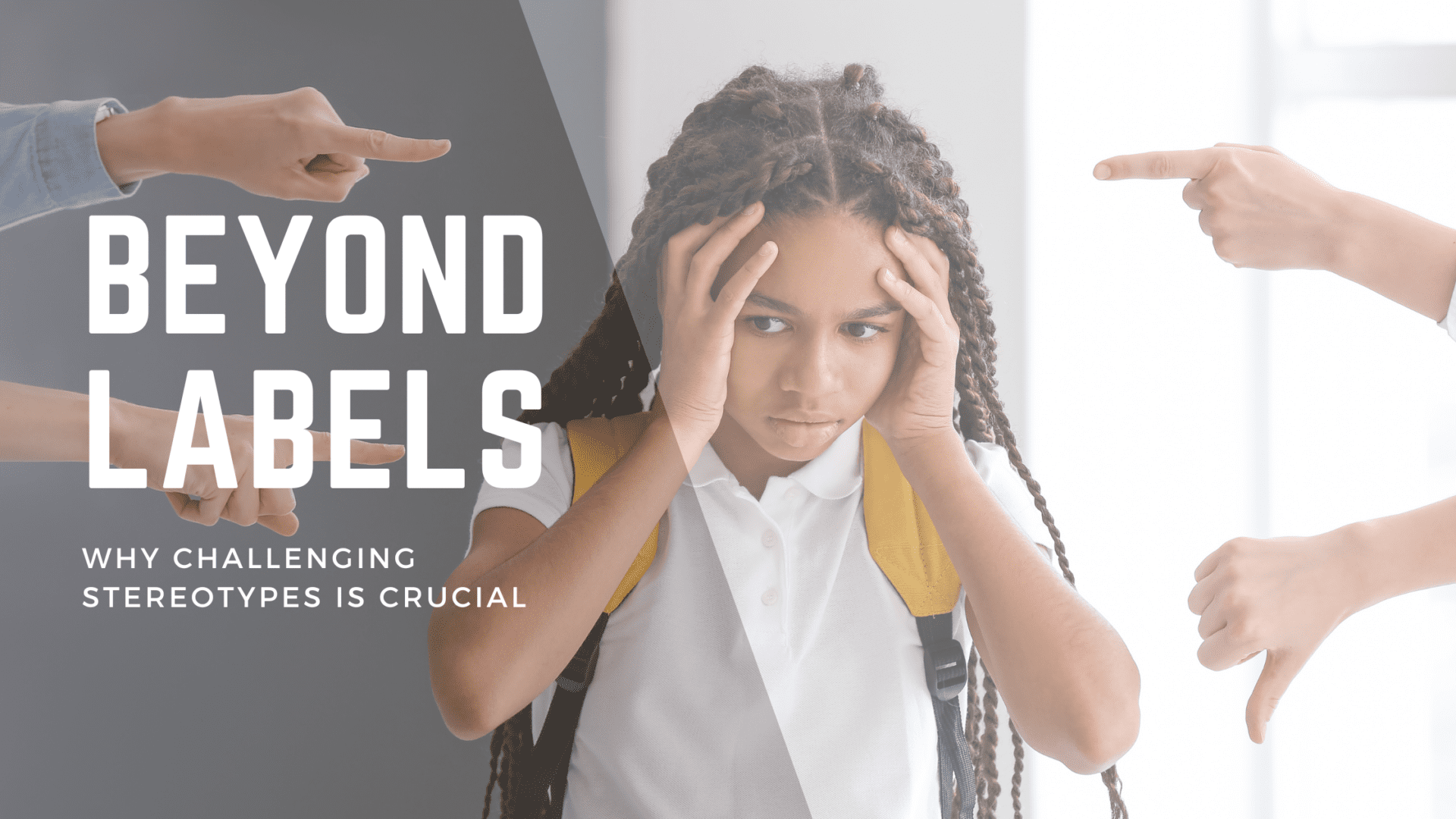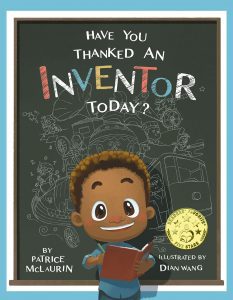
Beyond the Labels: Why Challenging Stereotypes is Crucial
https://patricemclaurin.com/wp-content/uploads/2024/05/3-1024x576.png 1024 576 pmclaurin pmclaurin https://secure.gravatar.com/avatar/14d9f9a6ef8e6cf4818ea0cf92291dd6bd51d25405d18dd5ba8c9a5f629ea1bb?s=96&d=mm&r=gStereotypes, (you know, those oversimplified and fixed ideas about a particular group of people), have long influenced societal attitudes and behaviors. While they might seem benign or even humorous at times, stereotypes are inherently harmful. They perpetuate misinformation, foster prejudice, and hinder progress by maintaining unjust systems of discrimination. Debunking stereotypes is essential for promoting equality, understanding, and social justice. This article explores why it is crucial to challenge and dismantle stereotypes and how doing so can lead to a more inclusive and equitable society.
Let’s begin by outlining the harmful impact of stereotypes:
- They Perpetuate Misinformation: Stereotypes often stem from incomplete or incorrect information about a group. They reduce individuals to a set of assumed characteristics, ignoring the rich diversity within any community. This oversimplification prevents people from seeing others as unique individuals with their own stories, talents, and perspectives.
- They Fostering Prejudice and Discrimination: Stereotypes lay the groundwork for prejudice, leading to discriminatory behaviors and policies. When people internalize stereotypes, they begin to see certain groups as inferior or unworthy, which can justify unequal treatment in various aspects of life, including education, employment, and law enforcement. This perpetuates systemic inequalities and social injustices.
- They Hinder Personal and Professional Growth: Individuals who are subject to stereotypes often face limited opportunities and lowered expectations. For example, a stereotype that suggests Black people are less capable in science and technology can discourage Black children from pursuing careers in these fields. Similarly, stereotypes about certain genders can lead to biases in hiring practices, affecting their professional advancement.
- They Damage Mental Health: The psychological impact of stereotypes is profound. Constant exposure to negative stereotypes can lead to internalized oppression, where individuals start believing the false narratives about their own group. This can result in diminished self-esteem, anxiety, and depression. The pressure to conform to or resist stereotypes can also cause significant stress and emotional turmoil.
Now, let’s highlight the benefits of debunking stereotypes:
- The Promotion of Equality and Social Justice: Challenging stereotypes is a fundamental step towards achieving equality. When stereotypes are debunked, it opens the door to more equitable treatment and opportunities for all individuals, regardless of their background. It also fosters a more just society where people are judged based on their abilities and character rather than preconceived notions.
- Encourage Diversity and Inclusion: Debunking stereotypes encourages the celebration of diversity and the inclusion of different perspectives. It helps create environments where everyone feels valued and respected, leading to richer interactions and more innovative problem-solving. Diverse teams, for instance, are known to be more creative and effective, as they bring a wide range of ideas and experiences to the table.
- The Enhancement of Personal Growth and Understanding: When people actively work to overcome stereotypes, they engage in a process of learning and personal growth. This involves questioning one’s own biases, seeking out new information, and developing a deeper understanding of others. Such efforts can lead to more meaningful connections and a greater appreciation of the complexity and richness of human experiences.
- Building Stronger Communities: Communities that reject stereotypes are typically more cohesive and resilient. They are better able to work together towards common goals and support each other in times of need. By promoting mutual respect and understanding, these communities can tackle social challenges more effectively and foster a sense of belonging for all their members.
Here are a few strategies to help debunk stereotypes:
- Education and Awareness: Educational initiatives play a crucial role in debunking stereotypes. Schools, media, and community organizations can provide accurate information about different groups and their contributions to society. Programs and books, like Have You
 Thanked an Inventor Today, that highlight the achievements and stories of marginalized communities can counteract stereotypes and promote positive representations.
Thanked an Inventor Today, that highlight the achievements and stories of marginalized communities can counteract stereotypes and promote positive representations. - Encouraging Critical Thinking: Teaching critical thinking skills helps individuals recognize and challenge stereotypes. Encouraging people to question the sources of their beliefs and to seek out diverse perspectives can reduce the influence of stereotypes. Media literacy programs, for example, can help people understand how stereotypes are perpetuated in the media and how to critically evaluate the information they consume.
- Fostering Interpersonal Connections: Building relationships with people from different backgrounds can significantly reduce stereotypes. Personal interactions allow individuals to see beyond stereotypes and appreciate the unique qualities of each person. Community events, cultural exchanges, and collaborative projects can facilitate these connections.
- Advocacy and Representation: Advocating for fair representation of all groups in media, politics, and other public spheres is vital. When people see diverse role models and leaders who defy stereotypes, it challenges preconceived notions and broadens the understanding of what individuals from different groups can achieve.
In short, debunking stereotypes isn’t just about correcting falsehoods; it’s about creating a more inclusive, fair, and empathetic society. By actively challenging stereotypes, we can dismantle the barriers they create and pave the way for a world where everyone has the opportunity to thrive. Through education, critical thinking, personal connections, and advocacy, we can move towards a future where diversity is celebrated, and equality is a reality.


 Thanked an Inventor Today
Thanked an Inventor Today